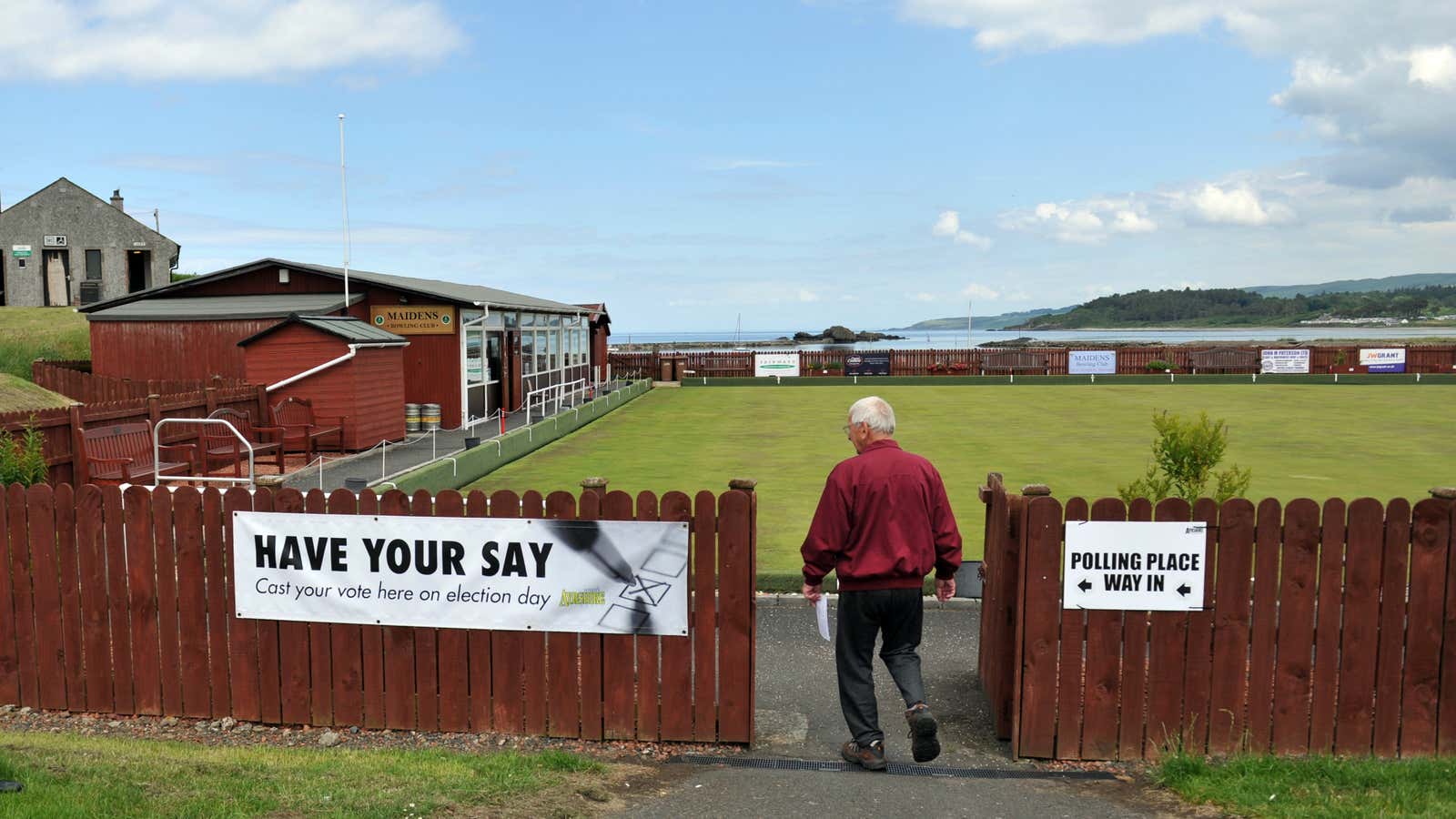On the day in which Britain’s future hangs in the balance, you would think that people would be on tenterhooks, eager for exit poll results to discuss and decipher.
They won’t get any. There will be no official exit poll results, not even after the polls close at 10pm today (June 23), because this referendum is such an anomaly that there is no way to design a reliable exit poll.
Regular exit polls are run by asking people at a sample of voting booths across the country how they voted, and then comparing the results with surveys from the same locations in previous elections. “The changes can be projected to build up a national picture,” the Independent explains.
But since Britain is voting on whether or not it will stay in the EU, a topic that has not been part of a general election, there is no baseline. “There is no last time this time,” says John Curtice, a professor at Strathclyde University said. The last referendum on the subject was 41 years ago and it’s safe to say the country has changed a bit over the years.
Patterns of voting in the referendum will in no way reflect general election preferences: Both of the country’s traditional parties are split on whether to stay in, or leave the EU, with all sorts of strange iterations. “This is a unique vote, which will be reported by local authorities that do not tally geographically—or demographically—with general election voting wards,” explained the Week.
Some people, namely rich ones, will commission their own data. Financial firms will run private exit polls to try and make money in some of the myriad markets available: the direction of the pound—which has been shooting up lately—or the stock market. “Hedge funds have asked for exit polls and for hourly polls on the day. Banks are certainly commissioning polls for their own consumption that are never released,” one pollster told the Financial Times (paywall).
Regardless of who commissions an exit poll, results can’t be reported until after the polls close. Section 66 of the Representation of the People Act of 1983 bans the publication of any forecasts or predictions for elections before the polls are closed. People can say—or tweet, or Instagram—how they voted, but they cannot tally their friends’ votes and stick that on Facebook.
According to the Independent, there will be two polls published after 10pm, one by YouGov, which contacts people it had previously surveyed to see if they voted the way they said they would vote, and another, much smaller one by TNS, another polling company. They are not traditional exit polls, and it’s anyone’s guess how accurately they will predict the outcome—which can be said of some traditional exit polls as well.
The Electoral Commission has offered guidance as to when we might expect concrete results: “around breakfast time” on Friday. Considering what’s at stake, that’s pretty fuzzy.
